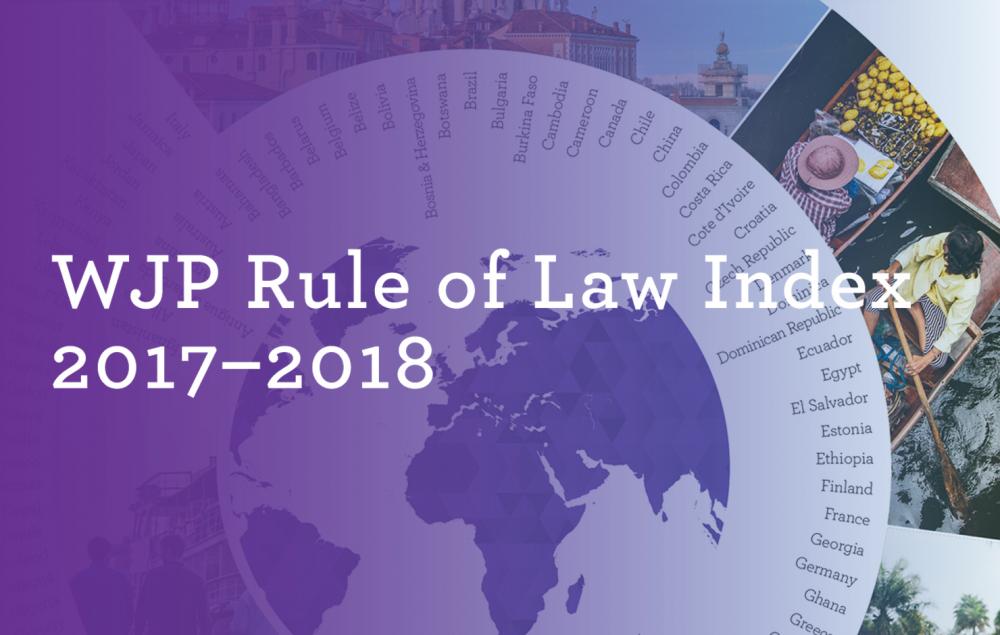
The 2017-2018 WJP Rule of Law Index® measures rule of law adherence in 113 countries and jurisdictions worldwide based on more than 110,000 household and 3,000 expert surveys. Featuring primary data, the WJP Rule of Law Index measures countries’ rule of law performance across eight factors: Constraints on Government Powers, Absence of Corruption, Open Government, Fundamental Rights, Order and Security, Regulatory Enforcement, Civil Justice, and Criminal Justice.

Since the publication of the last WJP Rule of Law Index in October 2016, a majority of countries worldwide saw their scores decline in the areas of human rights, checks on government powers, and civil and criminal justice. The greatest decline was seen in Factor 4, Fundamental Rights (71 countries dropped out of 113), which measures absence of discrimination, right to life and security, due process, freedom of expression and religion, right to privacy, freedom of association, and labor rights. The second greatest decline was seen in Factor 1, Constraints on Government Powers (64 countries dropped out of 113), which measures the extent to which those who govern are bound by law.
In addition, more countries’ overall rule of law score declined (34%) than improved (29%) as compared to their 2016 Index scores—a troubling trend. Thirty-seven percent of countries’ overall rule of law score remained the same.
The biggest mover in this year’s WJP Rule of Law Index (calculated by comparing countries against the 2016 rankings) was the Philippines, which fell 18 positions, now ranking 88th out of 113 countries overall and 13th out of 15 countries in the East Asia and Pacific region. The Philippines saw the most significant drops in Constraints on Government Powers, Fundamental Rights, Order and Security, and Criminal Justice. In contrast, Burkina Faso, Kazakhstan, and Sri Lanka showed the biggest improvements in overall rank, each of whom improved by nine positions over their 2016 overall rule of law ranking.
The top three overall performers in the 2017-2018 WJP Rule of Law Index were Denmark (1), Norway (2), and Finland (3); the bottom three were Afghanistan (111), Cambodia (112), and Venezuela (113). The top three and bottom three performing countries have not changed since the 2016 Index.






